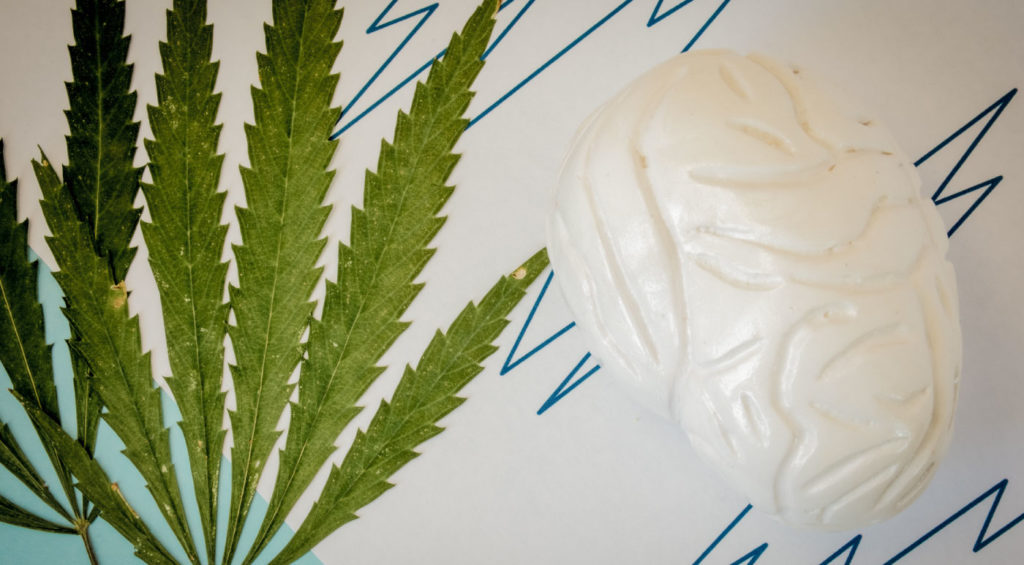
Every day, we experience emotions, thoughts, and stimuli from our external environment. The way we experience these thoughts and sensations is through our central nervous system. Our central nervous system communicates through electrical signals between neurons, which are the cells that make up the brain.
Most of the time, this system functions normally. However, these electrical signals can become abnormal, and the brain can become over-excited. When this happens, it results in a seizure.
Table of Contents
- Exploring Using CBD for Seizures
- CBD for Seizures: Just the Facts
- Understanding Seizures
- Complications of Seizures
- What is CBD?
- Treatment of Seizures with CBD
- Where Does the FDA Stand on CBD’s Legality?
- Final Thoughts on Using CBD for Seizures
Exploring Using CBD for Seizures
Currently, the conventional treatments available for seizures do not control seizures in 30-40% of patients. In addition, many people report experiencing serious side effects with anti-seizure medications. There is a growing body of evidence to support using CBD for seizures. Both research and anecdotal evidence suggest that CBD products are an effective adjunct therapy in seizures and treatment of epilepsy.
CBD for Seizures: Just the Facts
Seizures result from the over-excitement of electrical signals in the brain. When a person experiences more than two seizures, they are typically diagnosed with epilepsy. Current antiepileptic drugs do not control seizures in a large portion of patients, and people are looking to alternative therapies such as CBD. Currently, the FDA has approved a prescription CBD product for the treatment of some types of seizures, and there is a growing body of evidence to support the treatment of seizures with CBD oil.
Understanding Seizures

Seizures occur when there is a surge of electrical activity in the brain. The symptoms of a seizure depend on which areas of the brain are affected. For instance, some people begin to convulse violently, while other people stare blankly for a period of time. Epilepsy is diagnosed when a person has experienced at least two unprovoked seizures.
Type of Seizures
There are several types of seizures, which fall into two categories. The first type is focal seizures, and the second type is generalized seizures.
Focal Seizures
Focal seizures affect one part of the brain. There are two types of focal seizures:
- Complex focal seizures can cause a change in or loss of consciousness, as well as cause repetitive movements, including chewing, swallowing, or hand rubbing.
- Partial focal seizures do not cause a change in consciousness. They typically cause a change in emotions or the perception of how things look, smell, feel, taste, or sound. These kinds of seizures may also cause muscle twitches, numbness, or tingling.
Generalized Seizures
Generalized seizures affect all parts of the brain. There are six categories of generalized seizures:
- Absence seizures are most common in children. They typically cause a person to stare into space and cause rapid blinking or lip smacking.
- Tonic-clonic seizures, also known as grand mal seizures, cause a person to fall to the ground and convulse. In these types of seizures, a person loses consciousness.
- Tonic seizures cause a person’s muscle to stiffen.
- Atonic seizures cause a person to lose their muscle control and collapse.
- Clonic seizures cause repetitive muscle jerking of the neck, face, and arms.
- Myoclonic seizures cause muscle jerks of the arms and legs.
Causes of Epilepsy
In the majority of cases, the cause of epilepsy is unknown. However, there are some risk factors for epilepsy, which include:
- Head trauma
- Brain infections
- Autism
- Family history
Complications of Seizures
Complications of seizures depend on the type and severity of seizures. In convulsive seizures, there is a risk of falling or getting hurt. Additionally, there is a risk of status epilepticus—which are prolonged seizures—which can cause brain damage.
Dravet syndrome and Lennox-Gastaut syndrome, which are severe types of epilepsy that typically present in infancy or childhood, have a high risk of mortality. Currently, there is no antiepileptic medication that effectively treats Dravet syndrome or Lennox-Gastaut syndrome in the United States.
Treatment Options
The current treatments available for epilepsy are antiepileptic drugs and other anti-seizure medications. In some cases, children grow out of their seizures, and in other cases, people require lifelong treatment. Unfortunately, medications are only effective for just over 50% of people. Many patients experience side effects like dizziness, fatigue, weight gain, memory issues, and depression.
Alternative Treatments for Seizures
Because the current treatments for seizures are only somewhat effective, people are looking to alternative treatments. Examples include the ketogenic diet and herbal approaches, including using CBD products for treating their epilepsy.
What is CBD?

CBD is also known as cannabidiol, and it comes from the cannabis sativa plant. There are different strains of the cannabis plant, including medical marijuana and the industrial hemp plant—which is where the CBD for CBD products comes from.
What makes these plants different from one another is the number of different cannabinoids they contain. The marijuana plant contains high levels of tetrahydrocannabinol (THC), which is a psychoactive cannabinoid, whereas the industrial hemp plant, which CBD products come from, contains very little THC. Furthermore, CBD products are also made with purified cannabidiol, also known as CBD isolate, which does not contain any THC.
Treatment of Seizures with CBD

CBD products have caught the attention of the American people and are becoming more popular every day. Many people report that using CBD helps their pain, anxiety, and sleeping issues, without the side effects of most medications. Clinical trials on using CBD oil for various uses have been very promising.
Researchers are just beginning to explore all of the potential uses of CBD, and there have already been several positive research studies on using CBD for the treatment of seizures.
Approval of Epidolex for the Treatment of Seizures
Epidiolex, a purified, pharmaceutical-grade CBD product has been approved by the U.S. Food and Drug Administration (FDA) for two rare and severe forms of epilepsy, Lennox-Gastaut syndrome and Dravet syndrome. This approval is the first of its kind in the treatment of any medical condition with a CBD product. Until this point, these two conditions did not have any FDA-approved treatments.
Research on Epidolex shows that it is effective in treatment-resistant seizures of all types in both adults and children. Using this product resulted in improvements in both the severity and frequency of seizures.
The FDA approval not only gives hope to people with this form of epilepsy, it also shows that CBD oil can be an effective treatment for treatment-resistant epilepsy. Therefore, it is a promising option to treat seizures of various types.
Other Studies on CBD and Seizures

The first type of studies that looked at using CBD for seizures were animal studies. They showed that CBD was effective in preventing seizures, potentially through its effect on 5HT1A or 5HT2A receptors.
CBD products have been studied in humans with Dravet syndrome. Clinical trials show that CBD oil significantly reduced the frequency of convulsive seizures with this condition over a 14-week time frame. However, the majority of the participants experienced adverse side effects, including fatigue, dizziness, and sleepwalking. In addition, some individuals experienced elevated liver enzymes.
Cannabidiol has also been shown to be effective (in clinical trials) in the treatment of Lennox-Gastaut syndrome. A recent study found that CBD oil decreased seizure frequency in epilepsy patients and was generally well tolerated. Although many participants in the study experienced some adverse side effects, the majority of them were mild to moderate.
Side Effects of CBD
Although CBD is generally well tolerated, it can cause side effects, including dry mouth, fatigue, and diarrhea. CBD oil may also interact with some medications, including blood thinners, so it should never be used without first consulting your physician.
A Summary of What the Research Says
Research supports the idea that cannabidiol (CBD) oil is an effective anti-seizure medication in animal models and humans.
There have been several clinical trials that demonstrate that CBD may be able to treat treatment-resistant seizures and treat epilepsy effectively.
The only CBD product approved by the FDA is Epidiolex, a prescription product.
Where Does the FDA Stand on CBD’s Legality?

While cannabis products containing THC are still illegal in most states, the Farm Bill makes it clear that hemp products containing trace amounts of THC are legal at a federal level in the United States.
As previously mentioned, the FDA has approved the use of Epidiolex for certain types of treatment-resistant seizures. More research is currently being conducted on the medical use of CBD for other conditions.
The increase in scientific investigations is due in part to many testimonies like this one from a veteran, that indicate the medical use of CBD may significantly increase the quality of life for many people without adverse effects.
Final Thoughts on Using CBD for Seizures
There is good evidence to support using CBD for treating seizures. The Epilepsy Center states that “a number of studies have shown the benefit of specific plant-based CBD products in treating specific groups of people with epilepsy who have not responded to traditional therapies.”
Keep in mind that the FDA does not currently regulate CBD products. When purchasing CBD products, choose those that have undergone third-party testing to ensure they meet certain quality and purity standards.
If you are considering using CBD products to treat your seizures, always speak with your doctor first.
